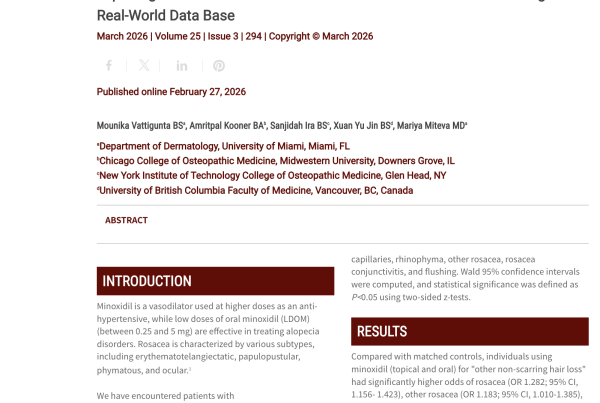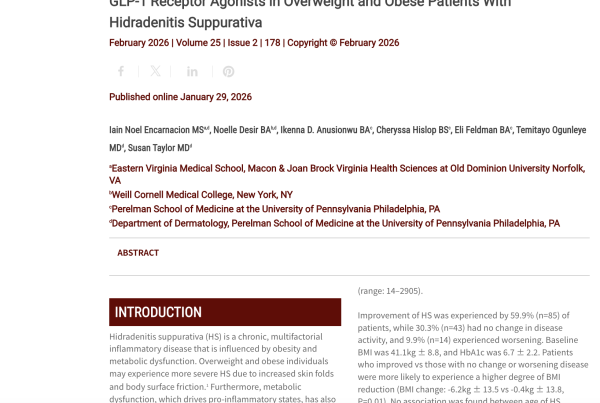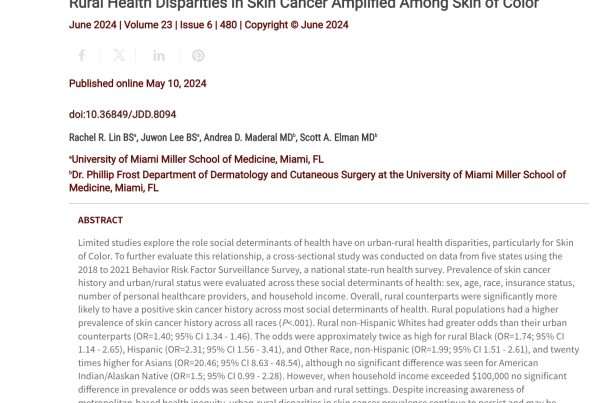Featured Article
“A rapidly growing number of dermatologists are advocating for the value of social media to promote their practices,” said Adam Friedman, MD, interim chair of the Department of Dermatology at the GW School of Medicine and Health Sciences and senior author on the study. “Only one other survey has been conducted on patient perception of social media. There hasn’t been enough to show us how effective social media is as a marketing tool for dermatologists.”
GW Survey Evaluates Influence of Social Media in Attracting Patients
A survey from the George Washington University evaluated whether patients consider a dermatologist’s social media presence when looking for a doctor
As of 2019, 79% of Americans have a social media presence on platforms such as Facebook, Twitter, and Instagram. Many dermatologists consider social media to be a useful tool for building their practices and recruiting patients. However, limited data exists about whether a provider’s social media presence is a driver in attracting new patients to their practice.
 “A rapidly growing number of dermatologists are advocating for the value of social media to promote their practices,” said Adam Friedman, MD, interim chair of the Department of Dermatology at the GW School of Medicine and Health Sciences and senior author on the study. “Only one other survey has been conducted on patient perception of social media. There hasn’t been enough to show us how effective social media is as a marketing tool for dermatologists.”
“A rapidly growing number of dermatologists are advocating for the value of social media to promote their practices,” said Adam Friedman, MD, interim chair of the Department of Dermatology at the GW School of Medicine and Health Sciences and senior author on the study. “Only one other survey has been conducted on patient perception of social media. There hasn’t been enough to show us how effective social media is as a marketing tool for dermatologists.”
The GW research team distributed a 10-question online survey to a diverse patient population to evaluate their perceptions of social media and what aspects of a dermatologist’s site are the most helpful. Only 25% of respondents aged 18–30 years old thought social media was extremely or very important, suggesting that leaning on social media may not be the best way to grow a practice.
The results also indicated that respondents who did utilize social media for these purposes were interested in seeing patient education, viewing patient reviews, as well as dermatologists’ experience levels rather than personal information.
“While patients overall may not rely on social media to select a dermatologist nor be interested in nonmedical content, many of our respondents did express interest in educational content written by their dermatologists on social media,” Friedman said. “Practitioners should still count social media as a tool in building their practices and engaging their current patients, however, it should be one of many methods that they rely on to recruit new patients.”
The authors say that further research needs to be done to determine whether social media is an effective educational tool for dermatologists.
You May Also Like
 Exploring the Potential Link Between Minoxidil Use and Rosacea Using A Real-World Data Base
Exploring the Potential Link Between Minoxidil Use and Rosacea Using A Real-World Data Base
Exploring the Potential Link Between Minoxidil Use and Rosacea Using A Real-World Data Base
 GLP-1 Receptor Agonists in Overweight and Obese Patients With Hidradenitis Suppurativa
GLP-1 Receptor Agonists in Overweight and Obese Patients With Hidradenitis Suppurativa
GLP-1 Receptor Agonists in Overweight and Obese Patients With Hidradenitis Suppurativa
 Non-Invasive Diagnosis of Sun Damaged Skin: Actinic Keratosis Vs Squamous Cell Carcinoma
Non-Invasive Diagnosis of Sun Damaged Skin: Actinic Keratosis Vs Squamous Cell Carcinoma






